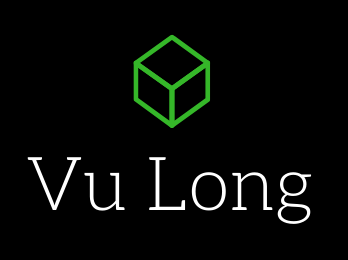Recently I came across a book titled, ‘ Freedom in Exile’, which is the Dalai Lamas autobiography which details his inspiring yet revealing life as a leader who is devoted to the plight of his people (i.e. the Tibetans) and seeks to bring peace to the world and save his people in a non-violent way.
He discusses the challenges and joy he had growing up in Tibet and having to become the head of state at the age of fifteen. He also shares details about the Tibetan ways, religions, and the plight of human beings along with some of his thoughts on the way society is structured.
I would like to share some of his views as we all have something to learn from him. I will share those that have struck me - as many are accord with how I, too, believe that humans should live together. I too, agree that as we’re all seeking the same thing, i.e. happiness!
Non-violence is the only way to conduct politics
While in exile, he makes reference to his admiration for Mahatma Gandhi’s ‘ devotion to the cause of non-violence was the only way to conduct politics’, as this was the approach he was taking as well. As he believes that it was ‘ only through the development of mutual respect, and in a spirit of truth, can friendship come about. By these means it is possible to move human minds, but never by force’.
A leader must be in touch with the common people
He believes that it as a leader it is vital to ‘ keep in touch with the common people...[as] anyone who wishes to lead must remain close to the common people. Otherwise, it is all too easy to be misled by advisors and officials and others around you who, for reasons of their own, might wish to prevent you from seeing things clearly’.
I agree and also envision times when they may not be intending to mislead you; however, as they only show you one perspective - one side of a situation, you might not understand or be given the full picture – only what they deem as important. I believe it is best, if time and resources permit, to be able to see things and make assessments for yourself. Since, for example, one can understand text that has been translated say from Japanese to English, some meaning is generally lost in its translation, and it is only through reading and understanding it directly in Japanese that its true meaning is given (although of course, no one person reads text in the same way just as when one looks at a picture – as prior experiences, knowledge of subject, language etc. will affects that...).
People are the same and seek happiness and freedom
He notes that the ‘ desire for freedom is fundamental to all living beings’ and believes ‘...people everywhere are basically the same, despite certain superficial difference. They all, like myself, seek happiness: no one wants suffering. Furthermore, everyone appreciates affection to others. With this in mind, I have found that friendship and understanding can develop’.
‘ To some people this may sound naive, but...no matter what part of the world we come from, fundamentally we are all the same human beings. We all seek happiness and try to avoid suffering. We have the same basic needs and concerns. Furthermore, all of us human beings want freedom and the right to determine our own destiny as individuals. That is human nature. The great changes taking place everywhere in the world, from Eastern Europe to Africa, are a clear indication of this’.
Aim to help people in any way possible, but also to learn
‘ Whenever I do meet people, my aim is to help in any way that I can, and also to learn what I can’.
I see this as my aim in life’s encounters as well, as I feel that we as human beings seem to have a natural curiosity and always seek to learn all we can about something and somebody, yet at times we can get so lost in that quest that we can forget about how we could also help the person we’re speaking to. Quite often, by offering a small piece of advice, a quote or insight we may be able to offer them the inspiration or insight that can help them on their journey in life – much as quite a few people have done for me in the past (you can read about one time this happened briefly on my other blog at https://vulongtran.blogspot.com/2009/11/ymca.html).
Better harmony and understanding between different religions
He tries to contributes towards ‘ better harmony and understanding between different religions...as all religions aim at making people better human beings and that, despite philosophical differences, some of them fundamental, they all aim at helping humanity to find happiness...[he looks at] religion as medicine. For different complaints, doctors will prescribe different remedies. Therefore, because not everyone’s spiritual ‘illness’ is the same, different spiritual medicines are required’.
Furthermore, all religions seek to ‘...cultivate goodness and bringing happiness to all human beings. Though the means might appear different, the ends are the same’.
He makes some good points which I’ll agree with, as I see religion as something that brings people together and gives them hope. It facilitates the friendship and family amongst the people. Sports is an example of what sort say are a religion as well. I believe food also forms a strong part of this bonding between people when food is shared.
On liberated societies
His observation is that people in liberated societies ‘ ...inclination for people to think in terms of ‘black and white’ and ‘either, or’, which ignores the facts of interdependence and relativity. They have a tendency to lose sight of the grey areas which inevitably exist between two points of view’.
Part of the problem within our societies may be the ‘ intense competitiveness of life in these countries [i.e. liberated societies], which seems to breed fear and a deep sense of insecurity’.
In reference to New York, it is a shame (my word) that ‘ there could be any beggars in this vastly rich and prosperous land’.
Other quotes, thoughts and comments
There is much more that is mentioned by the Dalai Lama, however, I will just note them down as I’m sure this has been quite a bit of reading for you already. Most of these are pretty self-explanatory.
‘...material prosperity alone cannot bring about lasting happiness’. ‘People have a right to their own opinions and I do not see it as my role to try to change their minds’. ‘...suspicion causes terrible unhappiness because it goes against a fundamental human trait – namely one person’s desire to trust another person’.‘...suffering is caused by ignorance...people inflict pain on others in pursuit of their own happiness or satisfaction. Yet true happiness comes from a sense of inner peace and contentment, which in turn must be achieved through cultivation of altruism, of love, of compassion, and through the elimination of anger, selfishness and greed’. He often practices mental exercises tha t ‘promote love towards all sentient beings, including especially [his] so-called enemies...he reminds [himself] that it is the actions of human beings rather than human beings themselves that make them [his] enemy. Given a change of behaviour, that same person could easily become a good friend’. ‘Learning to forgive is much more useful than merely picking up a stone and throwing it at the object of one’s anger, the more so when the provocation is extreme. For it is under the greatest adversity that there exists the greatest potential for doing good, both for oneself and others’.‘...people’s love for truth, justice, freedom and democracy will triumph. No matter what governments do, the human spirit will always prevail’. ‘...in favour of a humanitarian government, one which aims to serve the whole community: the young, the old and the disabled, as much as those who can be directly productive members of society'.‘...cultivate a universal responsibility for one another and for the planet we share, based on a good heart and awareness’.‘absolute informality’ in terms of interacting with young people appeals to younger audiences'.


